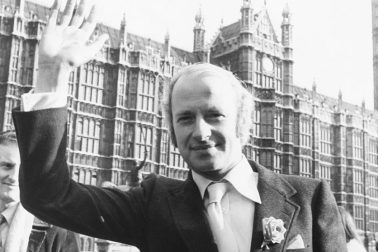I’m not a great fan of economic modelling. Remember, for example, the Treasury’s infamous claim that unemployment would rise by between 500,000 and 800,000 within two years of a vote for Brexit (i.e. before we had actually left). In the event, unemployment fell in 2018 to reach the lowest level since the mid-1970s. Yet having used economic models to rubbish the case for Brexit, it becomes very difficult then to ignore forecasts which claim there would be an even bigger negative economic impact from Scottish independence. So what, in other words, will Nicola Sturgeon and other SNP politicians do about a paper just published by the LSE that claims that independence would, in the long run, reduce Scottish income per capita by between 6.3 per cent and 8.7 per cent, costing households between £2,000 and £2,800 a year?
The LSE’s modelling should, like all work of this nature, be treated with scepticism
The paper notes that at present, 61 per cent of Scottish exports go to the rest of the UK and 67 per cent of imports come from the rest of the UK. Trade is, they say, six times what you would expect if Scotland and the rest of the UK were already two independent countries lying side by side. The cost of doing trade, they reckon, would increase by 15 per cent — or in a worst-case scenario by up to 30 per cent. While these costs might be reduced by Scotland and the rest of the UK forming their own single market, this would not be possible if a post-independence Scotland were to realise the SNP’s ambition of joining the EU.
The LSE researchers claim that Brexit will, in the long term, reduce Scotland’s income per capita by 2 per cent — a much lower proportion than Scotland would lose by leaving the UK. They note that EU membership would not work in Scotland’s favour unless independence had already so damaged trade with the rest of the UK that there was little left to lose.
The LSE’s modelling should, like all work of this nature, be treated with scepticism. It is not fact: just a model run on the back of certain assumptions. As with the modelling done in advance Brexit, this study only looks at friction in trade. It doesn’t take into account potential advantages of independence such as a sovereign Scottish finance minister making a better fist of running the economy than Rishi Sunak, or whoever was chancellor at the time. These things are unknowable — although it would take quite a leap of faith to imagine an SNP government, say, following the example of Ireland and slashing corporation tax to 12.5 per cent, something which has helped that country to attract investment.
But when you have relied upon such economic modelling to make your case against Brexit as Sturgeon has done, such as on this occasion, you can’t simply ignore the modellers now, when it suits you. So is Sturgeon going to say to the Scottish people: yes, independence will make you poorer, but I am still going to ask you to vote for it? Don’t hold your breath.







Comments